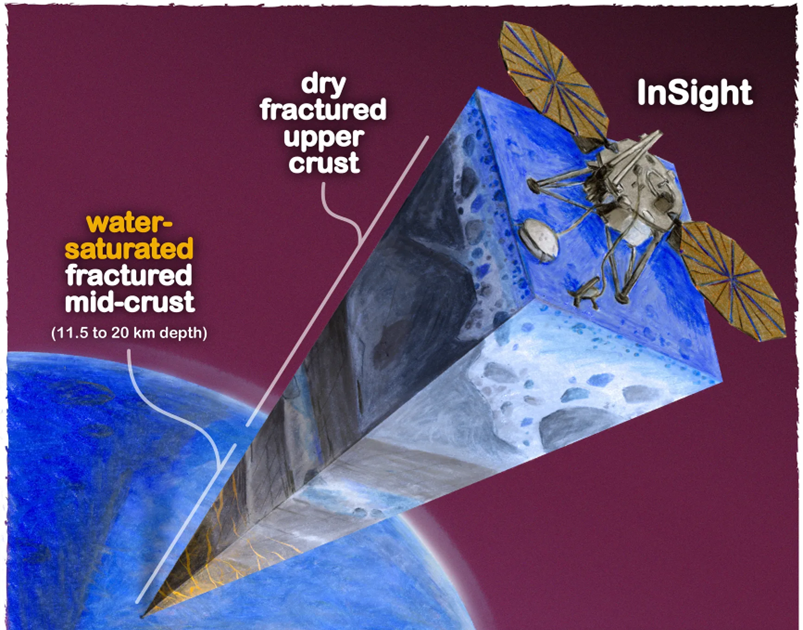- Courses
- GS Full Course 1 Year
- GS Full Course 2 Year
- GS Full Course 3 Year
- GS Full Course Till Selection
- Answer Alpha: Mains 2025 Mentorship
- MEP (Mains Enrichment Programme) Data, Facts
- Essay Target – 150+ Marks
- Online Program
- GS Recorded Course
- Polity
- Geography
- Economy
- Ancient, Medieval and Art & Culture AMAC
- Modern India, Post Independence & World History
- Environment
- Governance
- Science & Technology
- International Relations and Internal Security
- Disaster Management
- Ethics
- Current Affairs
- Indian Society and Social Issue
- NCERT- Science and Technology
- NCERT - Geography
- NCERT - Ancient History
- NCERT- World History
- CSAT
- 5 LAYERED ARJUNA Mentorship
- Public Administration Optional
- ABOUT US
- OUR TOPPERS
- TEST SERIES
- FREE STUDY MATERIAL
- VIDEOS
- CONTACT US
Scientists Discover Liquid Water on Mars for the First Time
Scientists Discover Liquid Water on Mars for the First Time
23-08-2024

Background:
A recent study reveals that there may be oceans’ worth of liquid water deep within Mars' outer crust. While water ice at the Martian poles has been known for some time, this is the first evidence of liquid water on the planet.
The Study
- Title and Authors: The study, titled "Liquid Water in the Martian Mid-Crust", was published in the journal Proceedings of the National Academy of Sciences (PNAS). It was conducted by Vashan Wright, Matthias Morzfeld, and Michael Manga from the University of California San Diego.
- Purpose: The research aims to enhance our understanding of Mars' water cycle, which could reveal more about the planet’s climate, surface, and interior. This discovery might also boost efforts to find signs of life on Mars.
How the Study Was Conducted
- Data Source: The team used data from NASA’s Mars InSight Lander, which landed on Mars in 2018 and operated until December 2022. The lander had a seismometer that recorded seismic waves from Marsquakes and meteorite impacts.
- Analysis: Researchers analyzed the speed of these seismic waves to determine the materials they traveled through. They used a model similar to those used on Earth for mapping underground water and oil fields.
- Findings: They concluded that deep beneath Mars’ surface lies a layer of fractured rock, like granite, filled with liquid water.
Key Findings
- Location: The liquid water is thought to be located 10 to 20 kilometers below Mars' surface.
- Origins: The water might have seeped down from the surface billions of years ago when Mars had rivers, lakes, and possibly oceans.
- Volume: If the measurements from the InSight Lander site are typical of Mars, the water trapped in these rock fractures could fill an ocean 1 to 2 kilometers deep.
Implications
- Possibility of Life: While this discovery doesn’t confirm life on Mars, it increases the chances of finding a habitable environment. Michael Manga, one of the study’s authors, noted that water is essential for life, and similar environments on Earth host life. Thus, the underground water could potentially support life.
- Challenges for Colonization: For those like Elon Musk who plan to colonize Mars, the discovery poses challenges. Drilling 10-20 kilometers deep to access this water would be extremely difficult.
Conclusion
The discovery of liquid water deep within Mars’ crust offers new insights into the planet’s past and potential for life. While it opens up exciting possibilities, it also presents significant challenges for future exploration and colonization efforts.




